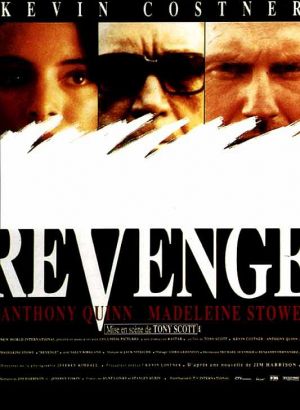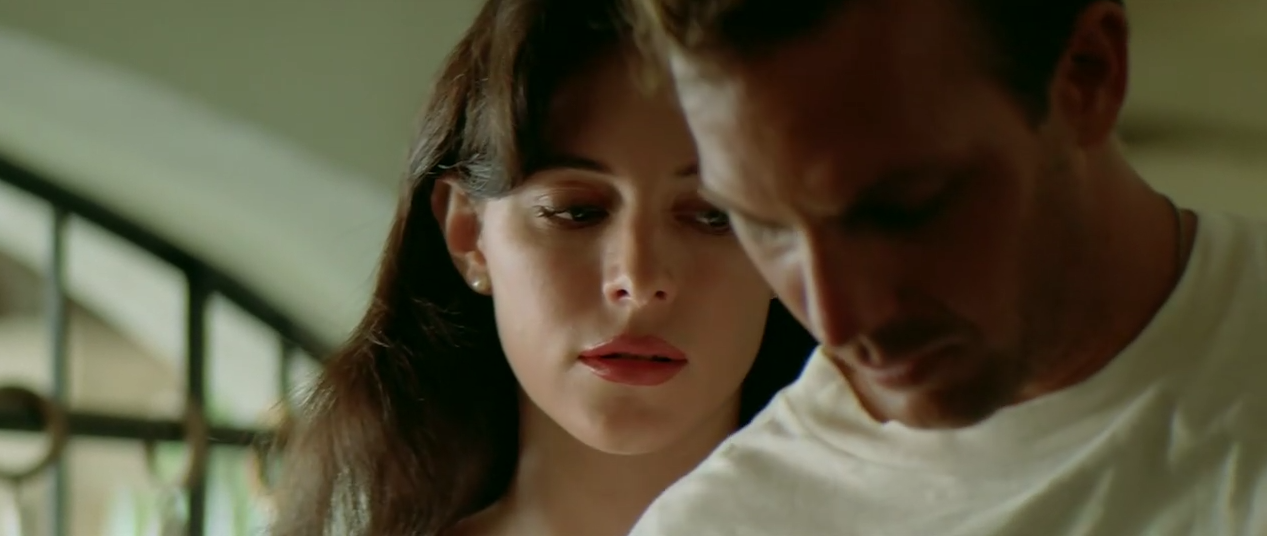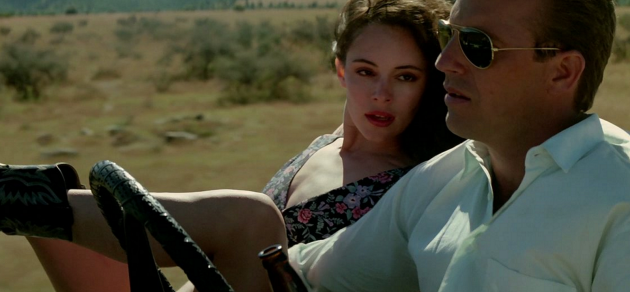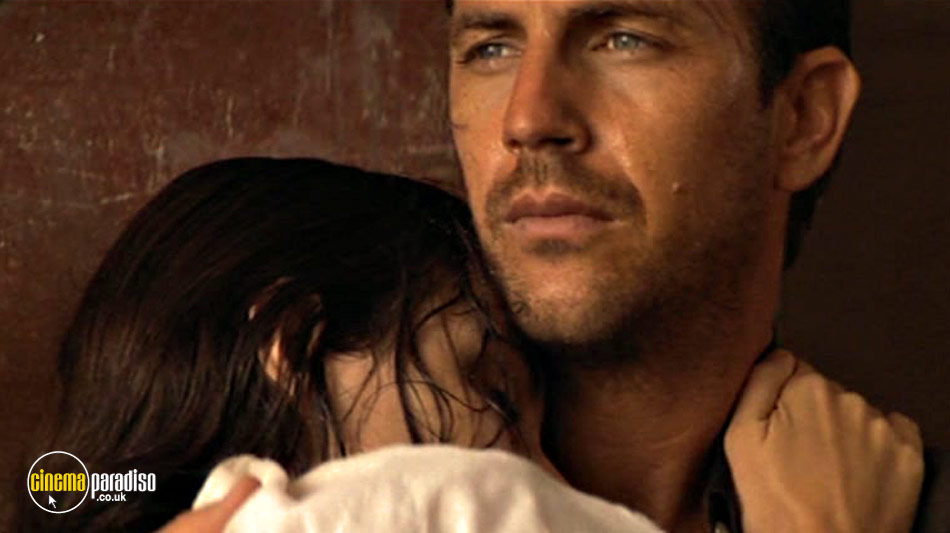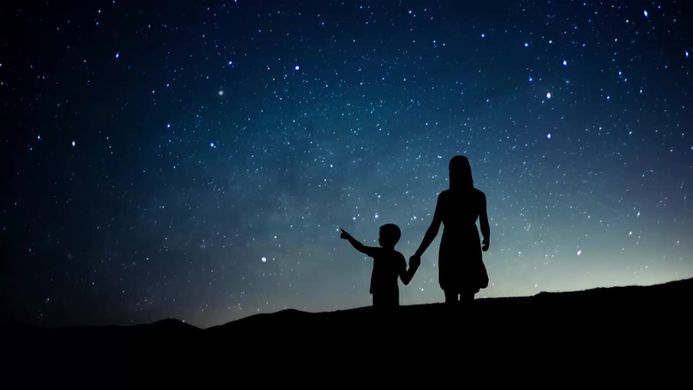
The popular saying, hope dies last? I beg to differ. It’s dreams that die last. And they only die when we do. Dreams die when the brain dies – unlike hopes. The sentient animal dreams. “Hopes” are conditions: expecting, projecting, wishful thinking. Dreams are unconditional, infinite possibilities.
We have no way of knowing if other sentient animals experience what we define as “hope” – until, maybe, one day we can communicate with dolphins and ask them some important questions hoping they answer. We can merely hope they answer. They might refuse to communicate, or they might respond in a non-informative way, like telling us to mind our own business. Would you blame them for that?
Animals do learn from past events and they do get conditioned to react to similar situations in similar ways – we call it learning, experience, training. But that is not hope. Although it would offer humans more actual reason to be optimistic, if we did manage to learn from history much better…
Humans always imagined Eutopias , Dystopias & Utopias. There is some confusion about these terms: Eutopia (from Greek “eu” = good + “topos” = place) is a realistic ideal situation, a society that we can actually work towards to and make happen. (Eutopia is not pronounced like Utopia in Greek, but Eftopia). Utopia is also a good place, but it’s unrealistic: a perfect state that is not feasible. Heaven. A Paradise. Pessimists would say that a Eutopia is Utopian, as human nature is imperfect. Optimists would think that even Utopias are feasible – hence the confusion between these two (remember The Field of Dreams?) Realists would say that every improvement is Eutopian – a step closer to that Good Place. Everyone agrees on what Dystopia means: a very negative version of the future that we will end up in, as a result of bad choices, if we don’t work to avoid it.
The belief that human society is always improving, that there is always progress, is a particularly persistent form of optimism that is obviously unwarranted. We are accelerating towards a Dystopian future that is just a few decades away, at most. Civilizations flourish, reach an apex, decline and often entirely disappear. (According to the Great Filter theory, “intelligent” life may self-destruct before it reaches capability for interstellar travel). The industrial civilization, for all its accomplishments and improvements in quality and expectancy of life, is sleepwalking towards extinction.
Hope is dying.
Powerful examples of thought-provoking Dystopian concepts in literature and film are Aldus Huxley’s Brave New World (1932), George Orwell’s Animal Farm (1945) and 1984 (1949), Ray Bradbury’s Fahrenheit 451 (1953), Anthony Burgess’ A Clockwork Orange (1962), Philip K. Dick’s The Man In the High Castle (1962) and Do Androids Dream of Electric Sheep? (1968, the book which gave us the classic Blade Runner), Kurt Vonnegut’s Slaughterhouse – 5 (1969), Alan Moore & David Floyd’s V for Vendetta (1988-89), Susan Collins’ The Hunger Games (2008) and a personal favorite, Equilibrium (2002).
Some great Utopias (in the Eutopian sense) include the most influential Plato’s Republic (c 380 BC), H. G. Wells’ A Modern Utopia (1905), and one of my most favorite science fiction novels, Arthur C. Clark’s Childhood’s End (1953).
Up until recently, we thought that non-human animals only live in the now – we were wrong. Not only some animals remember the past but they can also plan for the future. Undoubtedly, some intelligent sentient animals are self-aware and they do dream. We don’t know exactly if they can imagine the future like we do or how far ahead they can plan for, but there is evidence to suggest that some great apes do make future plans; of course, many animals dream in a rudimentary, elementary, involuntary sense.
We don’t just dream in that involuntary sense – we consciously, intentionally, assertively, proactively imagine better realities and better futures. We aspire, wish for, yearn, visualize, envision. And engage in wishful thinking – daydreaming – escapism, and often delude and convince ourselves that our hopes are justified – even if and especially when they aren’t…
We dream because the Eros Principle (the life instinct) seeks joy. It motivates us to create, preserve, perpetuate life. Our brain plays out scenarios – wish fulfillment – that we get pleasure from. It plays out soothing scenarios but also anxiety dreams, or nightmares, reactions to negative experiences, tension-release mechanisms. We don’t exactly understand the purpose of involuntary dreams, but they aren’t the subject of this post anyway.
The other dreams, the visions, the active, positive, creative wonderings of our imagination, the Voyages to a Good Place, are the ones we can make sense of; they represent the kind of future and improved reality we want ourselves and our children to live in; those conscious, intentional dreams, are the stuff inventions, breakthroughs in science, technology and society are made of; yet at the moment of conception, when the first flight of fancy or novel idea is born in the mind, we don’t know if they are realistic, if they have any chances of ever becoming true, if they could indeed lead to something better or not; still, the mere fact that we dream those dreams excites us and makes us happy. It makes us optimistic. It gives us hope.
So it’s dreams that offer hope, not the other way around.
And when reality proves that hope is not justified, what we are left with is still -dreams. Ideas are still there in the mind, in a dormant state, waiting to happen. Especially now, with the virtual reality of the cyberworld in place, alternative realities are part of our everyday tangible reality. We create them just to escape or as models of a better tomorrow. Even escapism can shape the future – with technologies that allow us to access and sense, experience the virtual world as if it was the real one. Science fiction that started with the stories of Jules Verne and long before him, thousands of years ago, with primitive and early humans casting their mind as far and wide as the cosmos, creating Eutopias, Utopias and Dystopias with imagination alone, has become a driver of innovation, invention and science.
Dreaming shapes our world.
Scientists by definition are realists; they know, to take a prime example, the most important issue of all, that Global Warming is real; they also know for a fact that we have very slim chances of avoiding it; they don’t hope – hope alone doesn’t actually help in increasing the odds of survival. In a way, hope leads to unrealistic expectations, complacency, inaction: “Oh sure, things are looking bad, but hey, everything’s gonna be alright“. No, it’s not. That’s false hope. Things don’t work like that. If things are bad, to make them better, or simply avoid them getting worse, we need ideas to make changes happen; and actions, not hopes.
Science is determined to solve the problem because realistic, factual thought knows the human population will not do enough, will not change the way it conducts its life sufficiently fast to restore the damage. There are too many idiotic deniers and too many insane, ignorant world-scale criminals working against humanity: lying to the public, casting doubt about research and facts, deflecting and distracting public opinion from the emergency and seriousness of the threat.
Politics and positions of influence and power attract opportunists and malignant narcissists. History is full of them and of the catastrophic carnages of war and genocides they caused. Unfortunately just as Global Warming requires massive common effort and international cooperation, there are some world leaders that are sworn to the opposite, for their own political and financial gain, their monumental lack of empathy and their ties with corporate greed. The situation is made worse because of the combined influence of religions and traditions that cultivate and propagate apathy, faith in messianic saviors and belief in miracles.

Religion trades in hopes: it sells comfort, and promises miraculous salvation; it promotes apathy and obeisance with the illusion of an afterlife where things are perfect – a future where dreams have already come true. Hey, you don’t have to get off your butt to make this life better (“do not worry about tomorrow”); all you got to do is believe without proof – have faith without evidence – do as you’re told – comply, and magically you will be rewarded – after you’re dead.
But – what about now? What about this life? OK, then, pray. Prayers will give you comfort…Meanwhile, you can “sin” all you like, be a total asshole – don’t you worry, little mortal, you will be forgiven. Go ahead, detonate nuclear bombs, destroy the world, kill millions of innocent children, abuse, murder, rape, exploit – still, you will go to heaven if you repent, so this life doesn’t matter. What kind of pay-as-you-go morality is this? Go ahead and be a total dick and a creep, a child molester even, a cruel homicidal sadist, then go to confession and the slate is wiped clean. Pope will sell you absolution. Christian ethics, Muslim morals – wonderfully elastic, ever so convenient…and deadly. Religion, conformity and consumerism formed the Axis of Evil that threatens life on Earth.
Comfort is not motivation. It reinforces optimism that things are going to be alright on their own. It’s a cop-out. It’s irrational. Pray and wait, some time prayers may be answered. Just wait, things are going to get better because they always do…but in truth, we don’t know that things are going to get better, in fact, the evidence points to the contrary. Waiting for miracles to happen or imaginary superheroes and totalitarian leaders to save us is definitely not the best survival plan. What animal senses danger and prays or hopes instead of getting out of harm’s way? only one – the most intelligent of all, as we arrogantly claim: homo sapiens, dumbed down by its own imbecilic, prehistoric invention, of a primitive psychological need born out of fear and ignorance about natural laws.
Without changes, we can’t rely on chances. We can’t just hope for a random fortunate turn of events. That would be highly illogical, in situations that actually depend on us, on action or inaction. We need to get out of our comfort zone to make things better. Keep doing the same thing and expecting different results is insane. We need effort, not wishful thinking.
In predictable fields, where we can recognize trends and make projections, it is quite possible to collect data and make educated judgments about the outcome. Some things are quite predictable. A sumo wrestler can’t possibly win the Olympic gold medal in pole-vaulting. That’s an improbability; winning the lottery is a probability, it’s just very, very unlikely, because although someone – a random person – does win the lottery quite often, the odds of it happening to you, or me – a specific person, are astronomical. Common sense (in other words, experience) and science can predict outcomes with varying degrees of accuracy. From the study of past events, facts and figures and cause and effect and natural laws, not by guessing or reading the tea leaves and the daily horoscope…
Sure, we could hope our lives away, but it would be self-destructive. When we know reality is bad and can’t get better by just hoping, without positive action hope dies. Belief without reason can make you feel better – it can be comforting: but it’s not going to make our world any better for you and your loved ones, cure AIDS or avoid catastrophe…

What realists and scientists and dreamers and inventors and creators and we all (potentially) have in common are, unsurprisingly, dreams. Ambitions. Creative thinking. Curiosity. Goals. Ideas. Ingenuity. Plans. Visions. Some of us don’t just rely on hope, expecting leaders, Lady Luck and gods to make things better: they imagine a better place, a better life, a better future; they wish for a better way, a more efficient method of achieving this or that and they act, work to find ways to invent it and make it happen. That is the value of dreams.
They could be totally unrealistic – like the idea of time travel, which is theoretically possible, but only under such unlikely conditions to make it highly improbable – or they could be totally possible. Faith promises absolute certainties without facts, proof or reason. Science deals with possibilities, facts and logic.
The distance between a better future (a Eutopia) and a bad present (not quite a terminal Dystopia, yet…but increasingly becoming one) is those possibilities and rational thought. We empirically know that there are no problems without solutions.
What we have, beyond hope, is our ability to dream a better reality and make it happen. That’s how progress is achieved. That’s how we find cures for disease. That’s how we improve living standards. Religious faith believes in gods’ will; the same “benevolence” that, according to the primitive “logic” that invented gods in man’s own image, gives cancer to innocent children.
Faith submits and subjugates us to accepting a malicious, preposterous, fatalistic concept. Humanity and rational thought revolts against it. If you could create a universe, would you punish your most innocent children for any reason – and then be such a reprehensible coward as to blame it on themselves, parents, women and “original sin”? The answer is a resounding no – human morality is much better than that. Only a capricious, vindictive sadist would do what theists accept as the work of a divine superior mind. Epicurus disposed of that absurdity more than two thousand years ago – and his logic remains irrefutable:
“Is God willing to prevent evil, but not able? Then he is not omnipotent. Is he able, but not willing? Then he is malevolent. Is he both able and willing? Then whence cometh evil? Is he neither able nor willing? Then why call him God?”
So don’t despair when hope is dying. It’s only the primitive belief in fate and a future dependent on divine will that keeps us shackled in a prehistoric dark cave, rejecting the marvel and potency of Ideas, casting doubt in our potential to shape our own present and future reality. Our history attests to the opposite. Humanism rejects the morally bankrupt concept of a superior puppet-master.
Don’t give up when everything points out to a very dark dystopia with little chance of escape. Realism is a better source for optimism – fear kicks butt into gear. We are the product of adaptation and evolution that equipped us for survival – with instincts, cognition, curiosity, imagination. For as long as we can dream, we grasp the possibility of a better tomorrow out of thin air and find exactly what we need to do to make it happen.
We can cure sickness – because we can dream, and act-move-work to make ideas realize a better tomorrow. We are work in progress and that in itself is wonderful. Sure, we are capable of some pretty horrible things and we’ve put ourselves and life on the planet in a very critical situation. But it’s us who did that – not Jesus or Mohammed, and that means we can correct it.

Scientists have given up hope about humanity collectively changing overnight and surviving Global Warming. Professor Stephen Hawking spoke of alternative possibilities for survival. That is realism and imagination, positive thinking and problem-solving all in one.
Scientists have given up hope because it is passive and unrealistic: educated, pragmatic thought is the opposite of that: active, inquisitive, always questioning, wondering, probing, proposing theories & hypotheses, experimenting, pushing the boundaries – not expecting that all will somehow be revealed as if by magic; conscious Dreams and plans are real and proactive. Visions and visualizations of possibilities are the opposite of passive and pathetic – they are windows of the mind to an alternative universe that we could arrive at by a change of course – making the invention of solutions possible.
Hold on to that thought.
If there is a real, pressing need, intelligence, ingenuity, research, study, the prolific human brain will find a way to answer it. That is what inspiration and experimentation have been doing for thousands of years. Providing solutions to problems, old and new. After days, months, years, decades, centuries – as better tools and improved methods become available, Eureka springs into consciousness like a triumphant cascade of light – a moment of great joy and sublime sense of accomplishment.
The first step towards that progress was dreaming.
We had been looking at the moon and stars, longingly, for thousands of years. Wondering what they were. Yearning to reach them. Hope alone would have never gotten us there.
What took us there was the dream, the initial Erotic hunger and thirst: falling in love with an idea. Interacting with the objects of desire: knowledge, life, the universe and everything – every question, every enigma, every knowable fact, every conceivable answer, every reachable conclusion, discovery, frontier…at first flirting with it, pondering on it; then probing at it, embracing its possibilities, visualizing the journey and the outcome; nurturing, feeding and keeping the dream alive, no matter how long it requires; growing and expanding the thought process to fruition; examining, learning and memorizing every step on the map along the way, working with facts and tools and figures; artfully applying old and new techniques towards finding the best route to make the voyage possible, to arrive at the destination, give birth to and unveil a new reality, create a new state of existence.
This is what I meant by Eutopian voyager: the journey bridging the distance between imagination and existence, between Eros (the yearning) and materialization. It’s what makes us special as a species. The dream is the first step, even before we prepare to set sail. That precious beginning, like a little spark in the darkness.
There is a magnificent moment in the masterpiece of Stanley Kubrick & Arthur C. Clarke, 2001: A Space Odyssey dedicated to The Dawn of Homo Sapiens, accompanied by the truly mindblowing orchestral introduction of Richard Strauss’ Thus Spoke Zarathustra. It is that split second, that the thinking mind grasps the possibility, the first glimpse of an idea that begins to form. You can feel the spark igniting, the glorious instant of change that made an entirely different history possible. An alternative universe was born at that very fraction of a second, the burst of an impulse that generated a universe that includes humanity. The start of an epic journey to discovery and becoming. The conscious dream that transformed our distant ancestors from thinking apes to sapient humans.
It doesn’t matter if hope dies. It’s a good thing: letting go of the superstition that things can improve if we remain fatalistic, passive witnesses of history, by some kind of an outside miracle, means coming of age as a reasoning, intelligent species. Our very humanity is born out of that brave, defiant, magnificent risk of trying different things, overcoming obstacles, pushing boundaries, becoming ourselves, protagonists in our lives, rather than just following a predetermined track.
Empathy, Realism, Imagination, Ingenuity are far better propositions for individual and collective improvement, rather than relying on hopes; they have often been false. They let us down more times than not. Hopes are mortal during our lifetimes, especially if we put our faith in gods and god-like despots, instead of pragmatic, hard-working, fact-checking, inquisitive, problem-solving, mature rational thought.
Giving up faith, empowering our minds, opening our eyes to reality, embracing aspiration and action is our only source of hope: Eutopian change for the better. It means we grow up to take control of our fate and future, instead of putting our trust in Pandora or some other imaginary benefactor. It signifies we care enough for ourselves and each other to take responsibility for our actions, instead of blaming what happens on divine will. Caring for each other and the future generations are what makes us humane, our strength, our heritage and our legacy. Isolation, lack of cooperation, hostility, are paving a highway to death and destruction.
Emancipation from servitude to a creator is the prerequisite of what we call Freedom. Religion & free will are mutually exclusive. The concept of a divine master endowing us with free will is oxymoronic and immature. The very reason we arrived at two minutes to midnight for life as we know it, is blind faith: sheeple mentality, religious traditionalism, patriarchal inequality, injustice, prejudice, division between the favorite sons and the children of lesser gods, between the master’s flock and the infidels, between us and them; exhausting the planet’s resources as if Earth was made for us to consume because the Bible says so; removing control of reproduction from women; believing that we have a better world to go to after death; replacing reason and philosophy (Eros, lust for knowledge) with a sterile, debilitating worship for tribal totems and anachronistic taboos; being reared and conditioned by churches to follow and obey mass-murdering tyrants like the faithful follow their tyrannical, whimsical gods.
What we define as “humane” is the very essence of morality that is a natural product of evolution, instead of god-made: empathy, compassion, communication, mutual support and teamwork, tolerance, understanding, are essential attributes of social species; we depend on these evolutionary qualities for survival and happiness, instead of obeying commands to avoid punishment and gain favor with a supernatural despot; that servile proposition is the very essence of corruption, it’s a transaction instead of ethics…
What we term as heroic is altruism, the sacrifice of self for the greater good: the very same natural product of evolution that is innate in most social animals; we aid and protect each other, shed our individual lives to save one another and the young – no different than any other mammal; they all display these instincts; they didn’t get them from faith, churches, commandments or biblical teachings, but from the common genetic code of synergistic behavior members of social species carry in their DNA.
Already ancient Greek thought, although still religious, realized that hope is not enough, prayer alone can’t provide solutions – action can: “Syn Athena kai heira kinei” – pray to the goddess Athena (to save you from drowning), but also use your arms to swim. Philosophy thousands of years ago arrived at the conclusion that there is no imaginary friend in the sky – and then patriarchal religion spread like wildfire imprisoning human consciousness to this day, poisoning the human mind since childhood, trying to keep us controlled in the pens of organized churches to serve the interests of the Elite masterclass. As a result, billions live in poverty, die of preventable diseases, are denied their human rights and deprived of education, marginalized, exploited, robbed of opportunities and real participation in the decision-making about their lives, even in the world’s wealthiest economies.
What we need in this critical time is to keep the dream and our humanity alive. Reject the mental slavery that keeps humanity following the twin sirens of death and destruction to its peril. Religion is a death-wish. It’s the enemy of the life force – the Eros principle; an obsession with the afterlife at the expense of this one.
Corporate greed has been using the same propaganda techniques as religion, to establish its world domination; it has used the hypnotic influence of blind faith to manipulate the public, keep voters uninformed, deluded and powerless to determine their own future.
Hopes are dying and our dreams are being transformed into nightmares. The old vampires of fascism and tyranny are rising and baying for blood.
We have to resist and survive. We have to unite, organize and act: work together.
Keep Life Going. Life is its own reward.
Plant many, many baby tomorrows. Dream as if your life depends on it – it does. Save the forests. Preserve the future.

When agents of Evil crawl out of darkness to kill Hope, what we have left is stronger: Dreams. Ideas. Human values.
*Συν Αθηνά και χείρα κίνει


